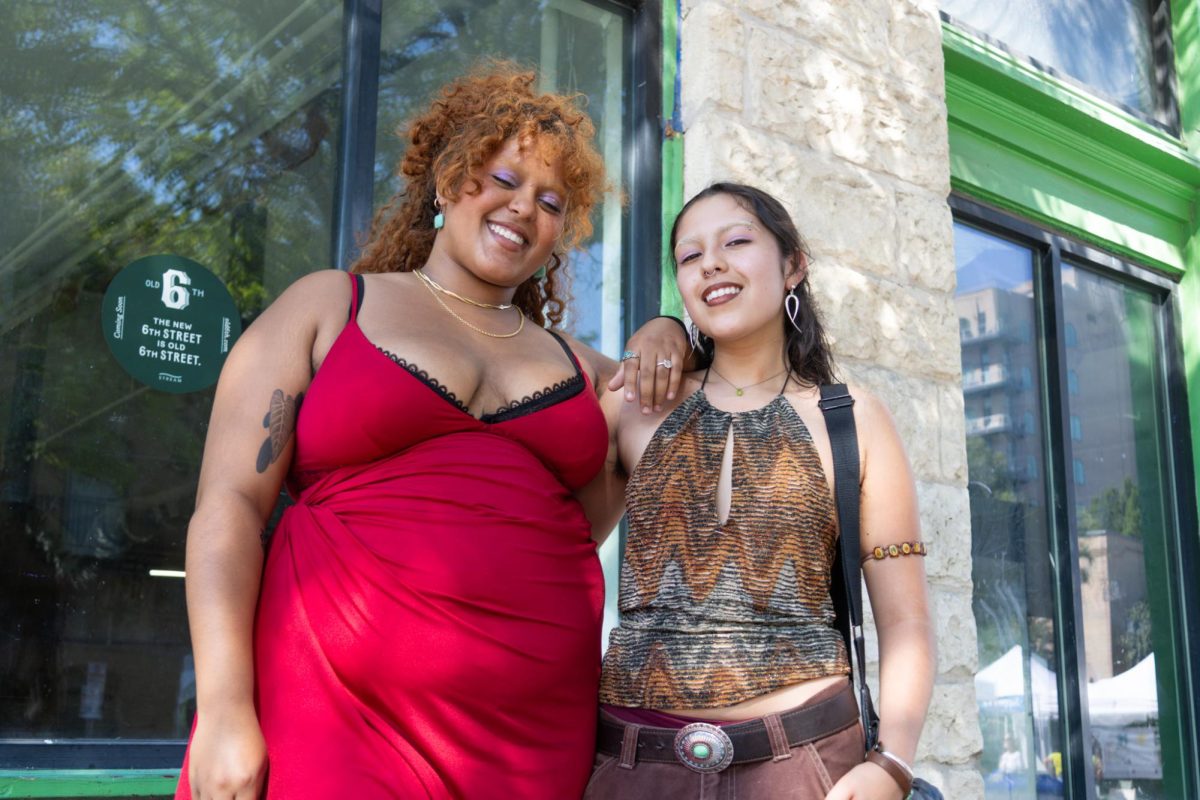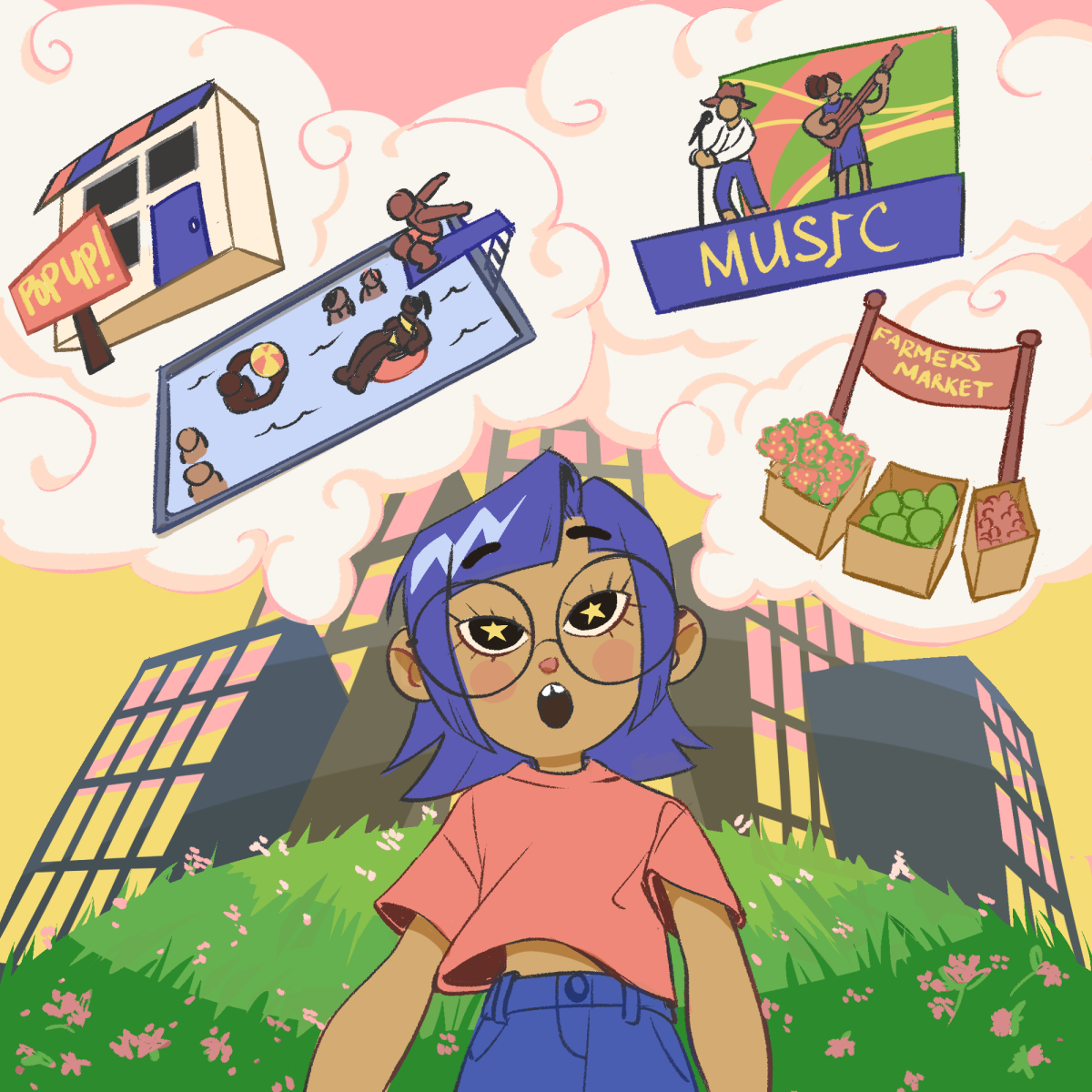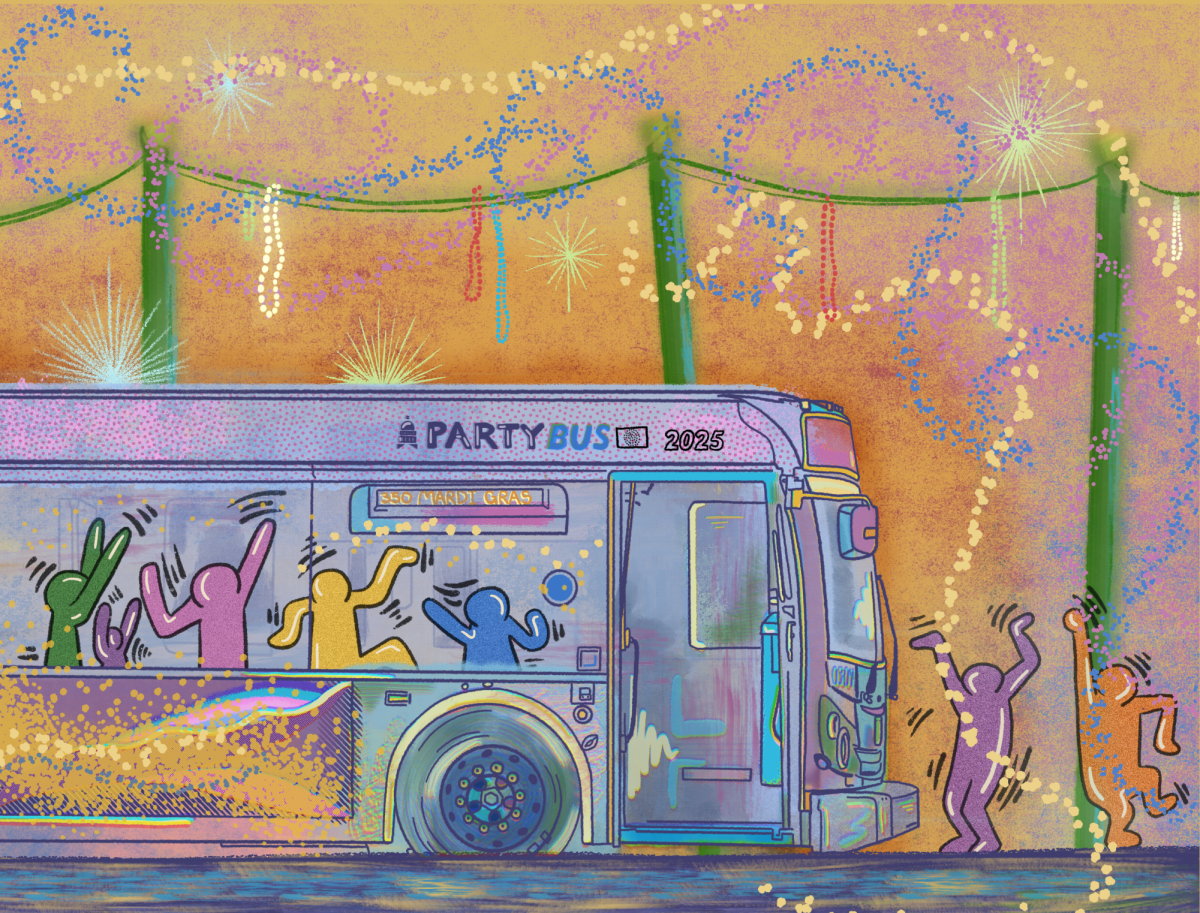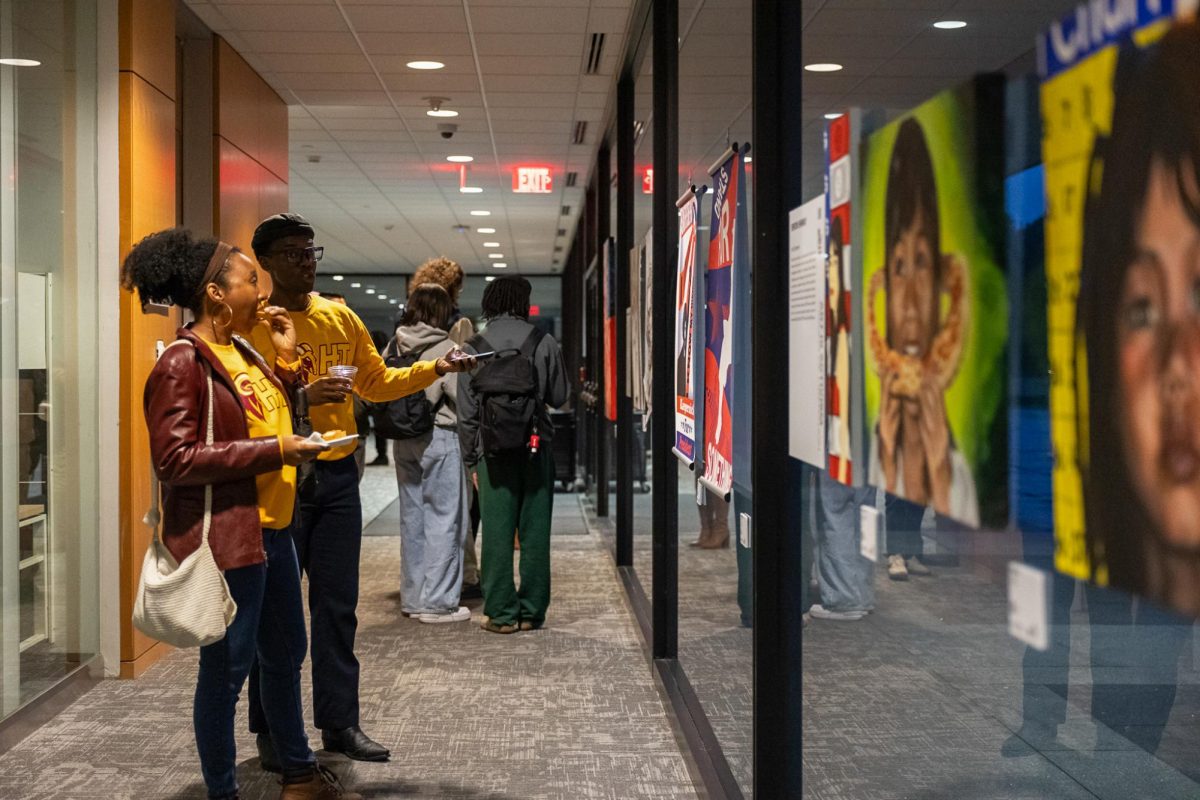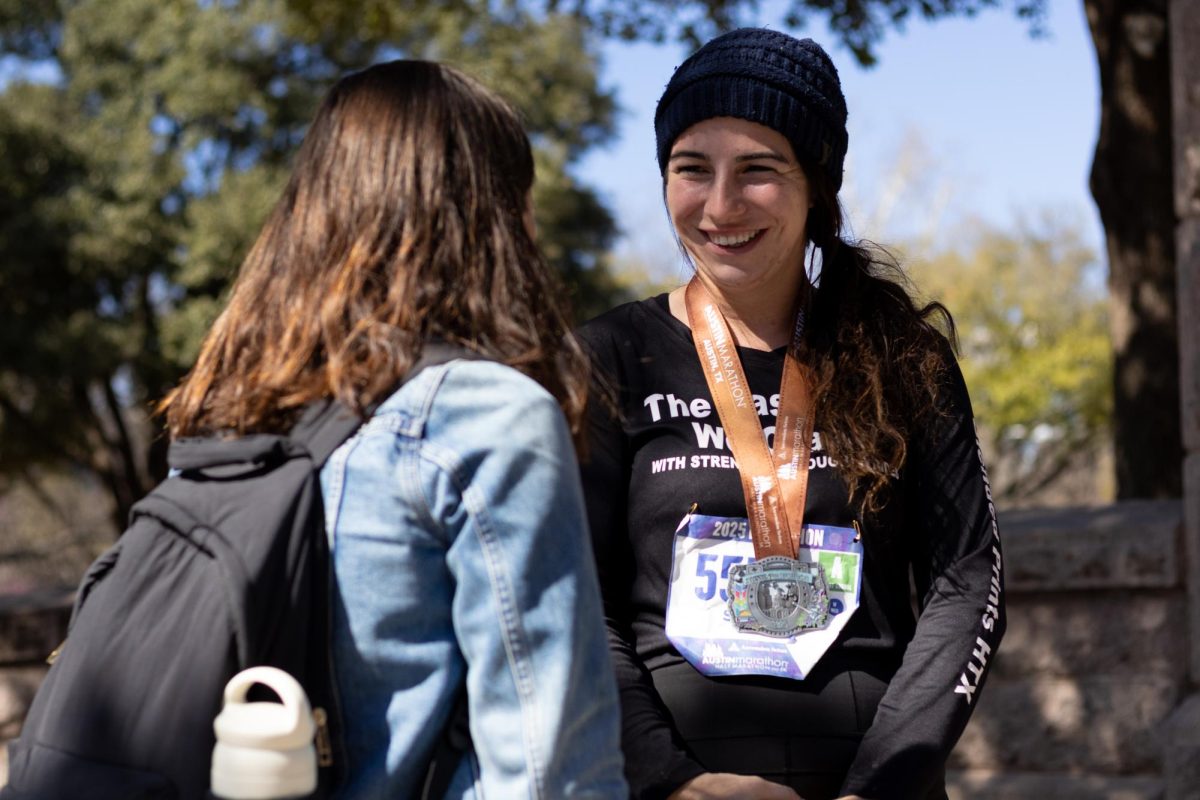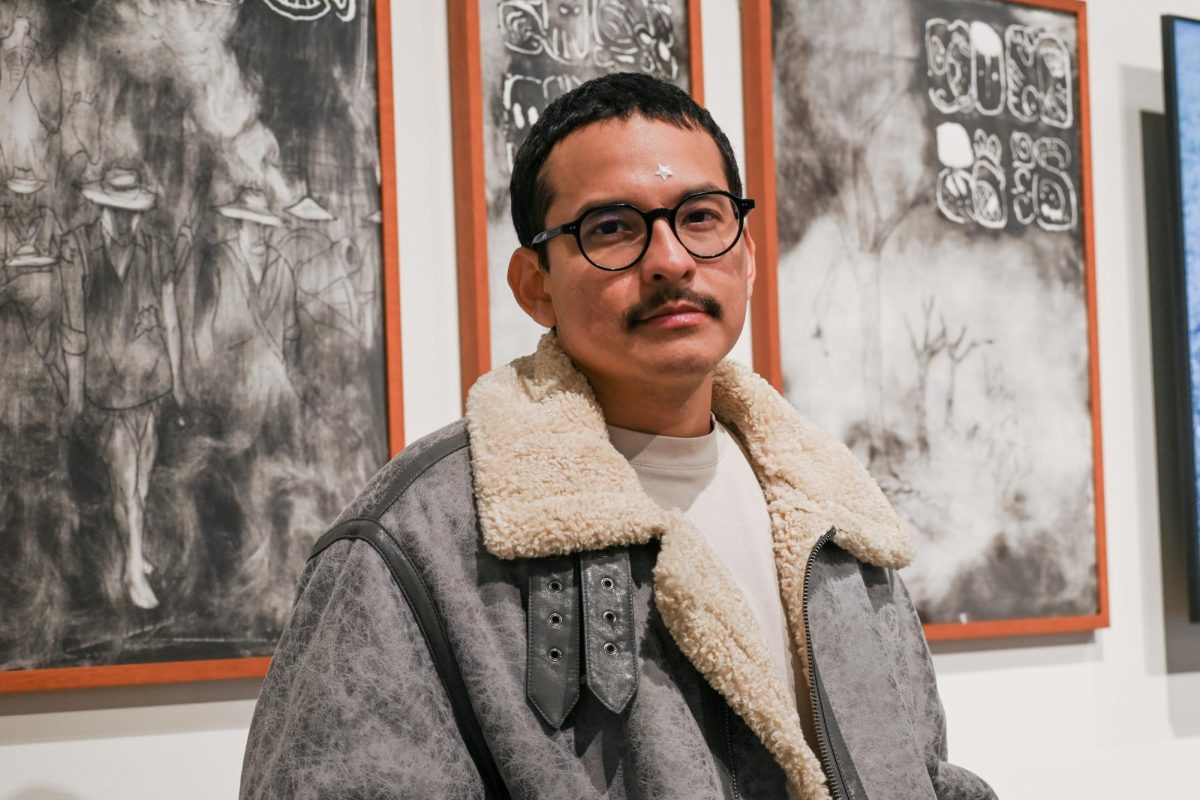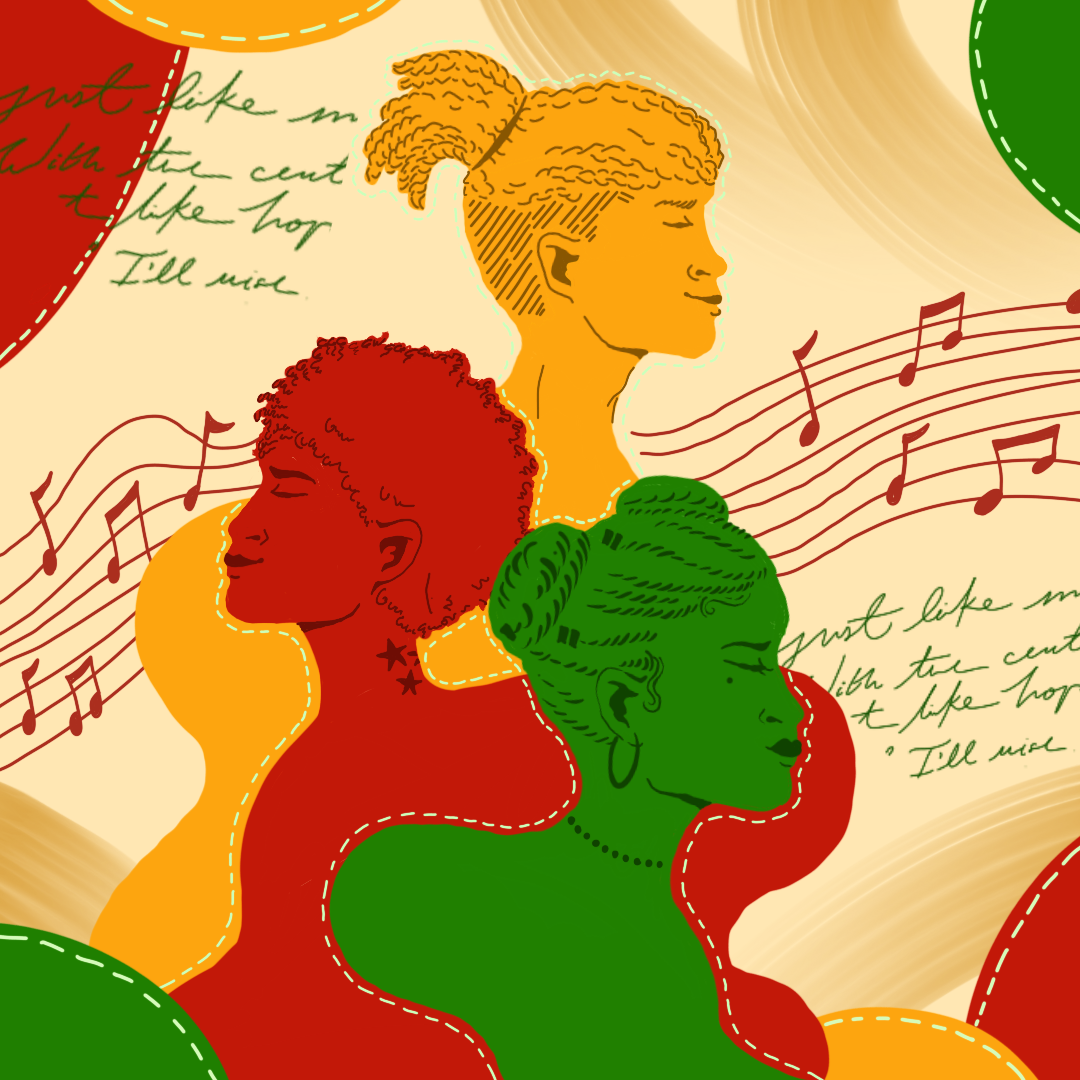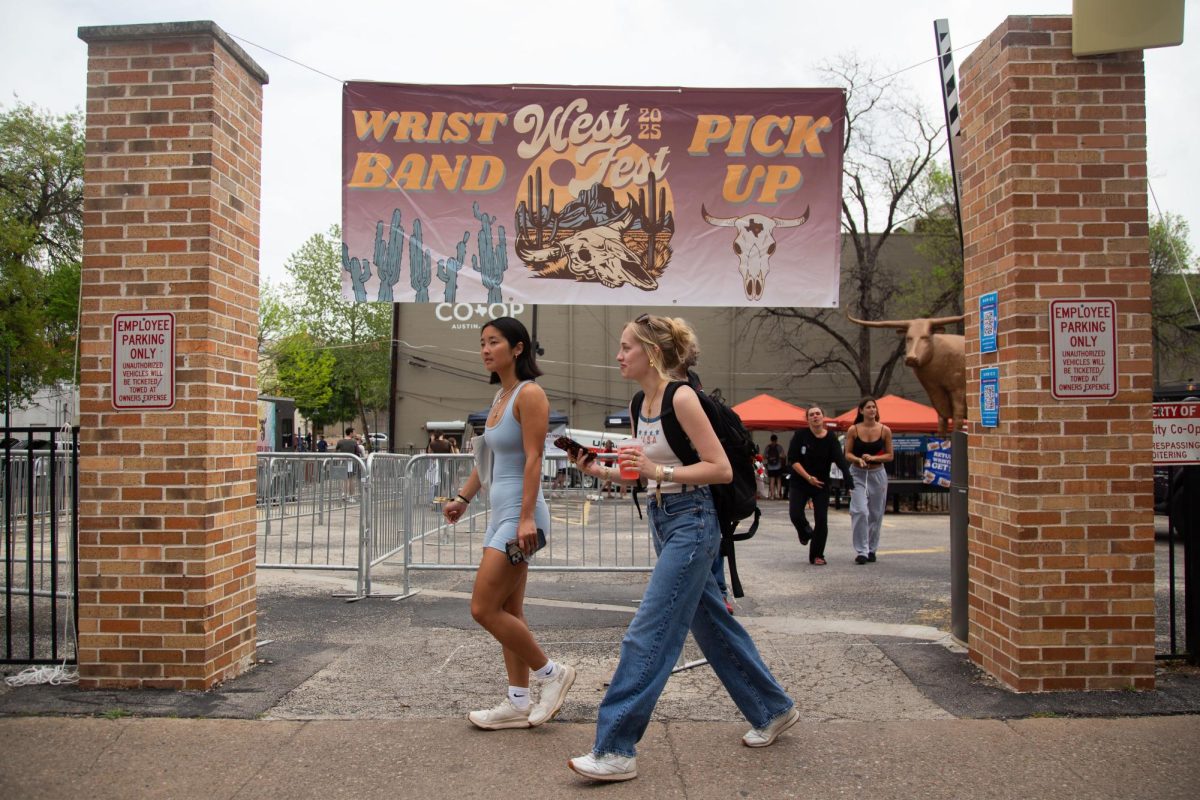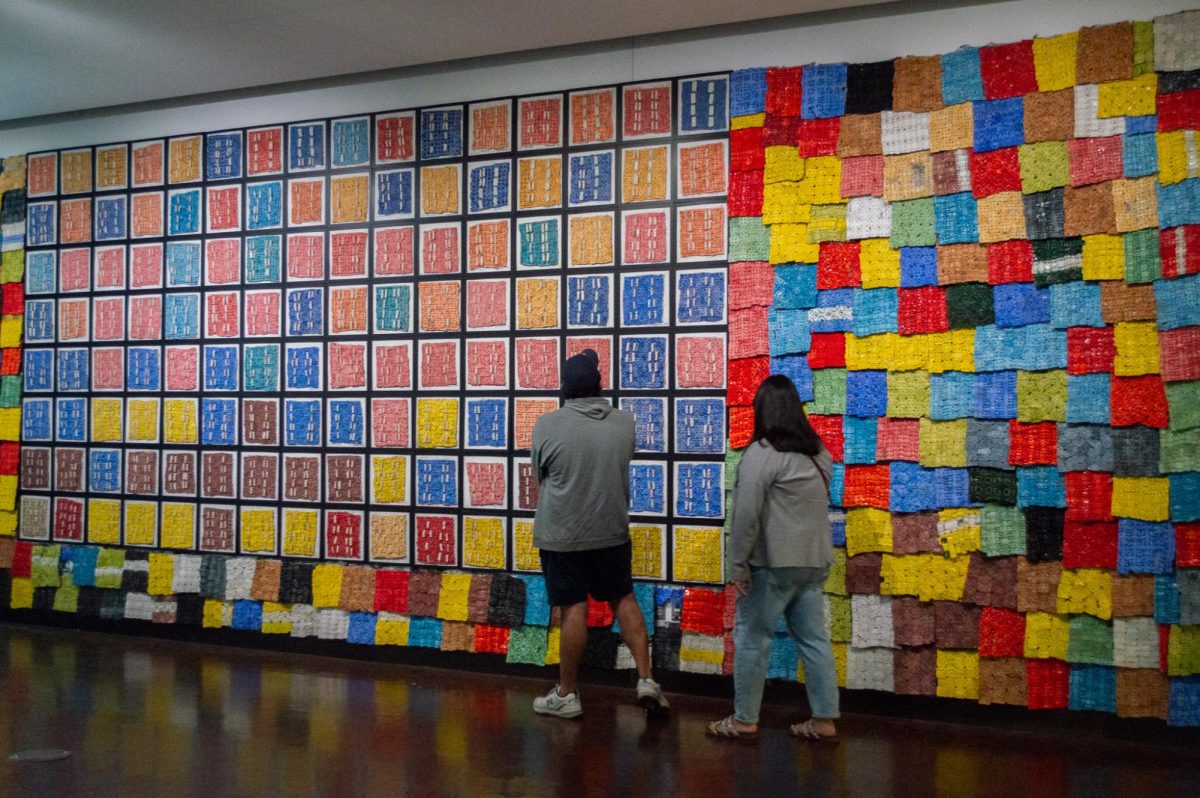Before earning its notorious nickname “Dirty Sixth,” Sixth Street was known by a different name: Pecan Street. The stretch of road, now synonymous with nightlife, transforms twice a year for the Pecan Street Festival, a celebration that brings Austin’s vibrant art scene to life.
This past weekend, the festival filled the historic district with local artisans, musicians and a community eager to embrace the city’s creative heart. Established over 40 years ago, the festival offers Austinites and visitors a chance to experience live performances, local crafts and diverse food vendors. With over 300 arts and crafts booths and multiple stages for live music, festival producer Luis Zapata said the event highlights the talent and creativity that defines Austin.
“What happens with Pecan is that certainly, we are a community show,” said Luis Zapata. “We are more a reflection of the local community. What you see at Pecan is what Austin is all about.”
1992 Honey Co., a local vendor, was among the many businesses showcasing their products at the festival. The event offers small businesses a connection with the community and grows their presence in the city.
“I always believe that a market maker’s place is to provide a space and people,” said 1992 Honey Co.’s co-founder, Adam Sockwell. “It’s great because the community can actually put together six blocks of inner commerce and intermingling. It’s a very good melting pot.”
Music plays a central role in the Pecan Street Festival, featuring performances across three different stages throughout the weekend with over 35 musicians of various genres, including Austin band Lady Monday.
“I love the energy you get from the audience,” said Lady Monday’s Aden Botchway. “Standing in front of a whole group of people, feeling their eyes on you, and them enjoying the music is such a good feeling.”
For Luis Zapata, the festival’s producer, the event holds personal significance. A former Longhorn (Undergraduate in Economics, ‘91, Master’s in Latin History, ‘94), Zapata said he remembers the Pecan Street Festival as one of his first free experiences with Austin’s live music culture.
“When you’re a student, you don’t have a whole lot of money to spend on tickets. It was this spontaneous, beautiful celebration,” he said. “The idea that years later I am given the responsibility to manage the event — it’s made my dreams come true.”
Beyond celebrating the arts, the Pecan Street Festival prioritizes giving back to the community. Each year, the Pecan Street Association donates festival proceeds to a variety of local nonprofits, including Undoing Racism-Austin, Austin Community Foundation and the Texas Green Network.
“The idea is that if a town can celebrate itself, you can celebrate the ability to have new ideas, that means that it’s a healthy town,” Zapata said. “It’s a progressive town. It’s a town that has heart and spirit.”

